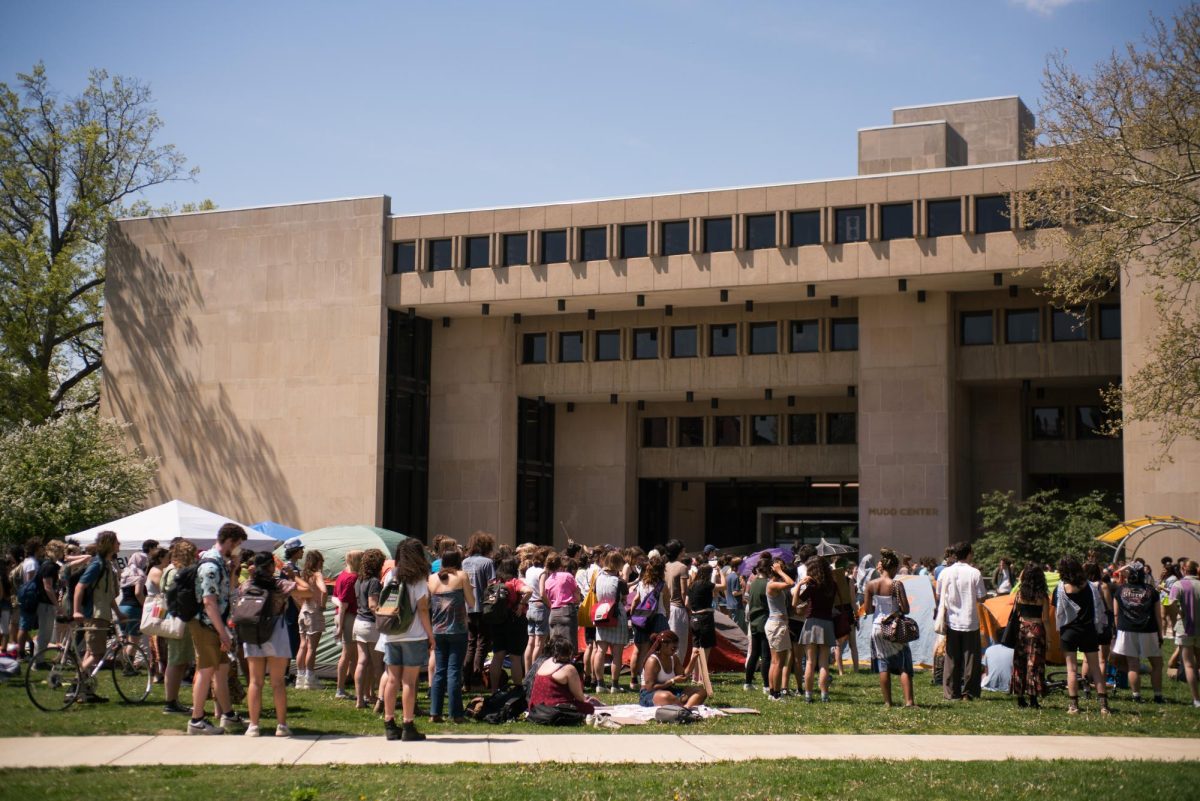I, like many Oberlin students, spent my Winter Term at the College, training on the women’s track team and learning how to drive. Except for the week when the weather was in the negative degrees and I laid in my bed under layers of blankets and sweaters, I enjoyed spending Winter Term on campus. I had the opportunity to relax, spend time with my team, and learn the important skill of driving. However, the experience was dampened by the lack of food options on campus.
The only two dining options on campus open to students during Winter Term were Stevenson Dining Hall, which reopened Jan. 3, and Azariah’s Café, which reopened Jan. 8. Stevie was the only hot and substantial food option for students, as Azzie’s only serves beverages, toast, and bagels.
The limited dining options meant that students staying at Oberlin for Winter Term had a lack of diversity of food options. While Stevie has multiple food sections such as a salad bar, fruit bar, pasta section, and the hot meal of the day, for students with specific dietary needs, there were few options. Many gluten-free students and students with allergies rely on Clarity, a dining hall which serves both meat and plant-based options absent of the nine common allergens. There was no gluten-free or allergy-sensitive section of Stevie added to the dining hall during Winter Term, leaving gluten-free students and students with allergies with very few options. The popular dining locations Lord Saunders — a dining hall in the Afrikan Heritage house — and Heritage — a certified kosher dining hall in Talcott Hall — being closed was also a disappointment to many students. These dining options are more accessible to students living on south campus, and in truth, are much preferred in quality to Stevie. Many Oberlin students are critical of Stevie food. It’s important to recognize that this is not in any way due to the staff of Stevie, but rather it is due to the cuisine options offered and invested in by the College.
One food option on campus that caused students particular anger for being closed was DeCafé. DeCafé’s to-go beverages and snacks allow students supplementary choices that they can eat in their dorm or on the go. The majority of students, and individuals for that matter, do not solely eat breakfast, lunch, and dinner. For myself, DeCafé is incredibly important for me to get more protein and fruit into my diet: I often get the protein bars and smoothie shakes. The nutrients DeCafé offers are imperative for many student-athletes, as they need more protein than the average student. It’s aggravating that winter sports athletes are asked to be on campus yet are without proper nutrients. Without DeCafé, many were forced to either be left without any snacks or to buy groceries, which is inaccessible to low-income students and students without a car.
Another major issue with the dining hall options on campus was the hours that they were open. Winter Term was the hours that they were operating. Stevie was only open for breakfast 8–10 a.m., lunch 11:30 a.m.–1:30 p.m., and dinner 5–8 p.m., whereas it is usually open from 7:30a.m.–8p.m., with different variations of food options. The hours of operation conflicted with many students’ Winter Term projects and activities. For part of my Winter Term, my class ran from 10 a.m.–2 p.m.; this presented a major problem for me as I had practice in the afternoon. I was forced to purchase lunch every day. Students’ difficulty of nutrition is only heightened with these hours, as not only is there only one substantial dining hall open, but there is no food option that is open all hours of the day.
My frustration over the limited food options on campus during Winter Term was in no way uncommon. Almost every student who I spoke to during Winter Term was annoyed that only Stevie and Azzie’s were open. Winter Term projects are a unique aspect of the Oberlin College experience.
Oberlin presents Winter Term as an opportunity for students to “pursue interests outside of regular course offerings through in-depth learning experiences in January,” and many of the projects and research opportunities take place on Oberlin’s campus.
In addition, it does not seem fair that Oberlin College encourages students to participate in Winter Term projects on campus when they cannot provide students with an incredibly basic need: food. Not to mention with Oberlin’s high tuition students should not have to be asking for the availability of decent and diverse food options at all hours of the day.










